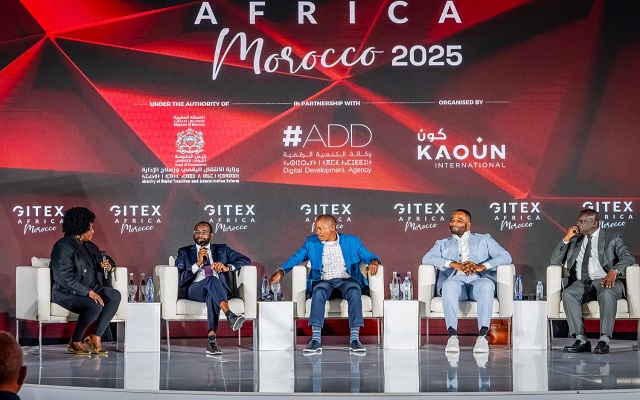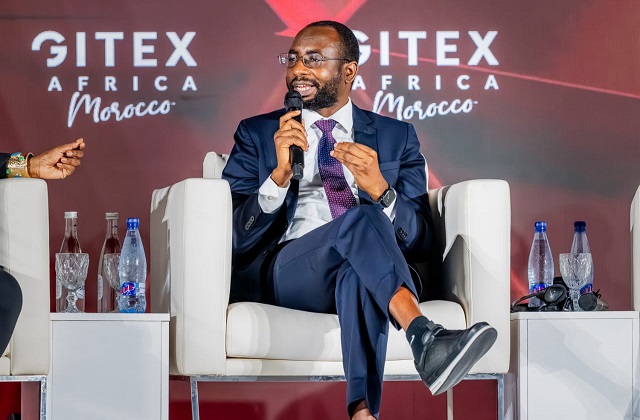News Highlights:
- Africa must lead the Fourth Industrial Revolution through AI, not follow, says NITDA DG Kashifu Inuwa.
- Inuwa unveils NITDA’s Regulatory Intelligence Framework to guide ethical and inclusive AI governance.
In a clarion call to African industry leaders, the Director General of the National Information Technology Development Agency (NITDA), Kashifu Inuwa, has declared that the continent must not miss the opportunity to lead in the Fourth Industrial Revolution—this time powered by Artificial Intelligence (AI).
“We missed the first, second, and third industrial revolutions, but this fourth one, we must lead it and not just follow,” Inuwa asserted passionately during a high-level panel session at GITEX Africa 2025 in Marrakech, Morocco.
Speaking on the topic, “Harnessing AI for Strategic Leadership,” Inuwa challenged policymakers, industry leaders, and investors to integrate AI into their business and operational frameworks, saying that doing so would redefine leadership and drive smarter, data-informed decision-making.
“AI is shifting the skills we value today, as well as the processes we use to do our daily work,” he said. “To drive strategic leadership, you need to be an AI-driven leader and find a way to use AI as a tool to create co-intelligence—whereby you bring people and computers to work together to deliver your strategic vision as a leader.”

Digital TimesNG reports that the session, designed to explore how intelligence-led strategies can transform economies and unlock new opportunities, resonated strongly with the international audience, with Inuwa positioning Africa—and Nigeria in particular—as an emerging force in global AI innovation.
“Our approach champions a people-first and strategy-led model of AI development and governance,” he noted, emphasizing that strategy must precede technology for it to deliver true business value. “Strategy must always come first, and technology second.”
Inuwa outlined four guiding principles for harnessing generative AI effectively: inviting AI to the table, maintaining human oversight, designing models with ethical guardrails, and embracing continuous improvement.
He explained further that AI is invited to the table by giving it a role in organisational tasks; maintain human oversight to correct bias and misjudgment; design guardrails to ensure privacy, ethics, and inclusivity; and adopt a mindset of continuous improvement by treating today’s AI as the least capable version that can be used.
However, the NITDA boss warned against AI systems built on biased data that do not reflect the full diversity of global societies. “If data doesn’t see a community, the system won’t see it either,” he warned, calling for greater digital visibility of all cultures and communities.
On the regulatory front, Inuwa introduced NITDA’s innovative Regulatory Intelligence Framework, which anchors its governance model on three core pillars: Awareness, Intelligence, and Dynamism.
“In our approach to regulating AI in governance, we have a framework we call the Regulatory Intelligence Framework, which as a regulator we need to be aware of the environment, we need to be dynamic because things change, and we also need to be intelligent. We need to know the data and make sense out of it,” he disclosed.
He further explained that this framework combines both rule-based and non-rule-based approaches: “The first one is rule-based, where you come up with guidelines and expect compliance. The second allows stakeholders to build use cases, and from those use cases, we put guardrails and agree on best practices—which is always the best when it comes to AI governance.”
Looking ahead, Inuwa painted an optimistic picture of Africa’s AI-powered future. He envisions a continent where AI is embedded in solving real-world challenges across every sector—from agriculture and healthcare to education and finance—thereby leapfrogging developmental bottlenecks.
“By augmenting human capability with AI, the continent can unlock unprecedented levels of innovation, efficiency, and inclusive growth,” he concluded.
Inuwa was joined on the panel by other notable voices from across the continent, including the Special Envoy on Technology for the Republic of Kenya, Philip Thigo; CEO of Pesalink, Gituku Kirika; and the Head of Africa at OpenAI, Emmanuel Lubanzadio—each sharing their unique perspectives on the transformative power of AI in Africa’s leadership and development.

